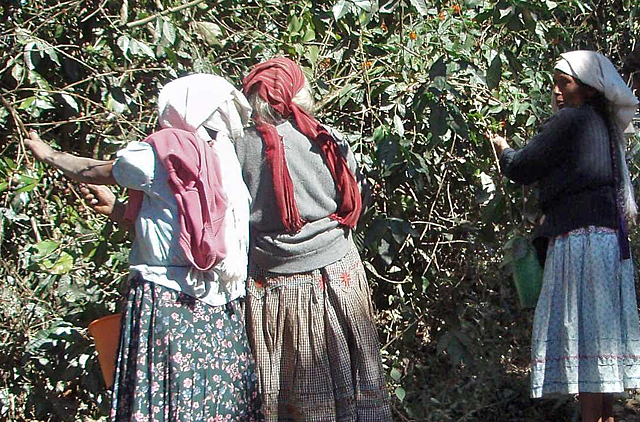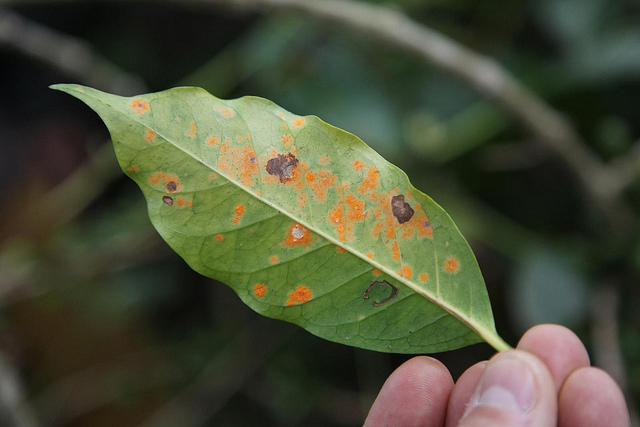Some Zapotec and other indigenous people in Mexico’s Oaxaca State are successfully selling their coffee to buyers in Canada and five European countries with the aid of a farmer’s collective. A news story last week described the work of the coffee farmers, their collective, and the losses caused by a leaf fungus that is devastating the plantations.

The newspaper interviewed a coffee grower named Huveiman Ruiz Vásquez, a Zapotec man from the municipality of Santiago Lachiguiri, in the Tehuantepec District of the state. He said he “grew up among coffee trees” and inherited the coffee business from his father. He expressed pride in his knowledge of coffee—its tastes and its quality. He has devoted the past 20 years to producing what he believes is a very high quality product.
He contributes his coffee to a collective called Café Uciri, after the formal name of the group, the Union of Indigenous Communities of the Isthmus Region. The collective, formed in 1982, is the oldest in Oaxaca. It started with coffee growers from 17 communities and has grown to where it now has over 2,000 members in 56 indigenous communities.

Their organic, fair-trade Arabica coffee is sold in Sweden, Germany, France, Austria and Italy as well as in Canada and other parts of Mexico. But the coffee leaf rust, or roya, has had a severe impact on the coffee plantations of the region. A worldwide infection, the fungus has decimated the crops of farmers in the Isthmus. Between 800 and 900 tons of coffee beans were stored annually by the collective until a couple years ago. Last year, due to the leaf rust, the coffee producers stored barely 50 tons.
But the news story included a hopeful note. The Zapotec and the other indigenous farmers continue to grow their ecologically sound, certified organic coffee anyway. And through it all, they are committed to preserving their unique traditions and cultures.